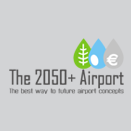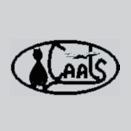

Concept development is a set of activities that are carried out early in the systems engineering life cycle to collect and prioritize operational needs and challenges, develop alternative concepts to meet the needs, and select a preferred one as the basis for subsequent system or capability development and implementation.
Concept development takes place early in the systems engineering life cycle. The success of the subsequent development of a system or capability can be critically dependent on the soundness of the foundation that is laid during the concept development stage. In their definitions of concept development, Kossiakoff and Sweet highlight phases of needs analysis (valid need and practical approach), concept exploration (performance to meet the need, feasible cost-effective approach), and concept definition (key characteristics that balance capability, operational life, and cost).
In this guide, concept development is described as four activities that identify and characterize user needs:
For more information please visit this link.

The modern economic and cost efficiency requirements make it inevitable for the management to have full control on the processes. It is a hard task to provide appropriate information for the right decisions especially when it is about decision support for an industrial establishment.... Read more...

Delays are still affecting the entire air transport industry. There are two types of flight delays “primary” (e.g. caused by weather, airlines, airport operations) or “reactionary” (e.g. when a delayed incoming flight has the knock-on effect of causing further... Read more...

The FP7 project Airport 2050+ explores radical and novel solutions to prepare airports for the year 2050 and beyond.... Read more...

The objective of the ATOM project was to study, design and develop the functional prototype of an innovative multi-sensor based system integrating active and passive radar sensors, improving the security level also in the Terminal area of the airport. ATOM system is a non-intrusive but pervasive sec... Read more...

CAATS - Cooperative Approach to Air Traffic Services - was a project under the 6thv Framework Programme of the European Union. The task of the CAATS network was to coordinate research processes and methodologies among other 6th Framework projects dealing with safety, human factor and validation issu... Read more...